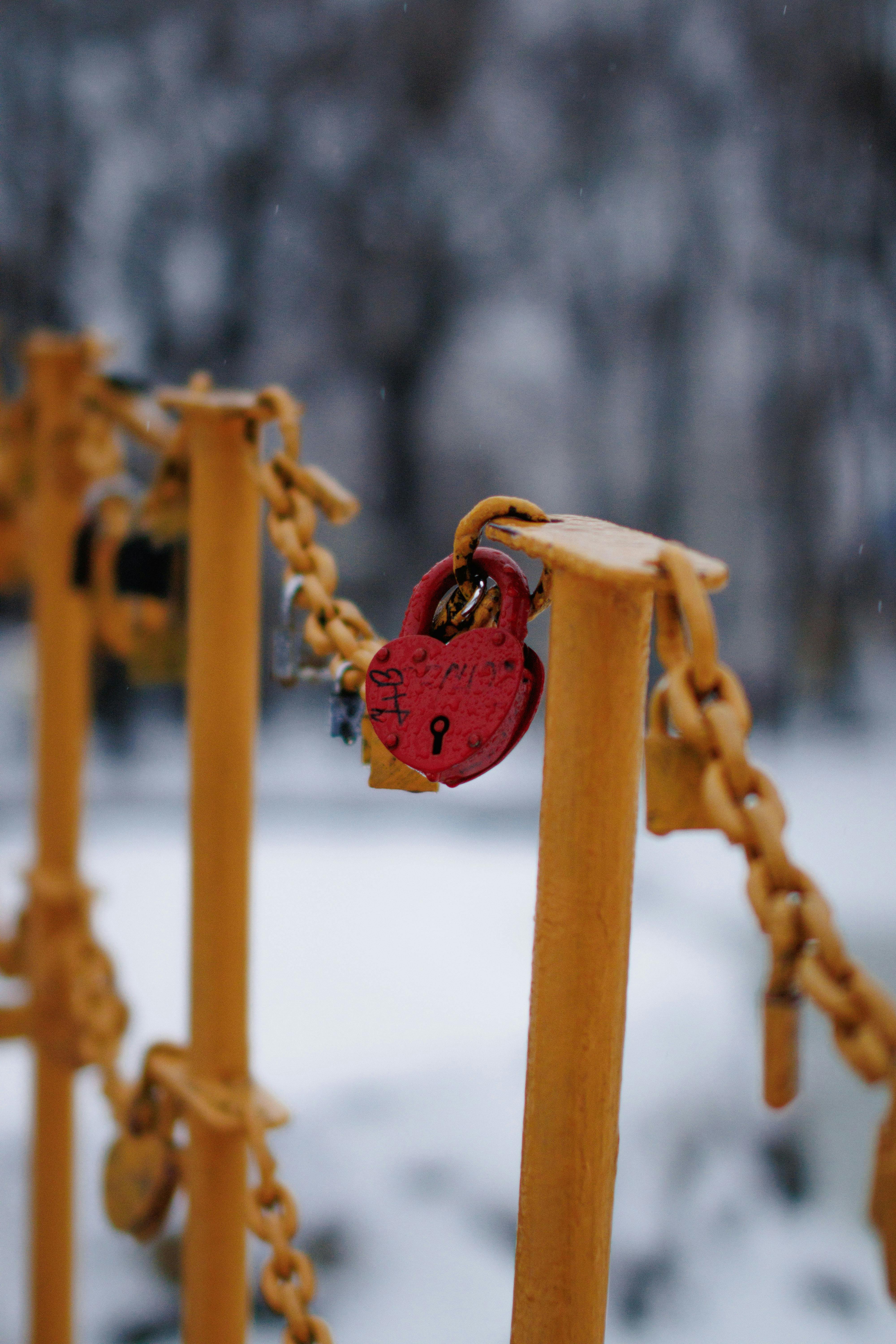Egypt: Simple Digital Toolkit for Personal Privacy & Security
Ever get the uneasy feeling someone’s peeking over your digital shoulder—or maybe you just want to stop big tech from packing away every detail of your life? In Egypt, digital privacy isn’t just a distant concern for hackers or tech elites; it’s the everyday Egyptian’s practical problem, much closer to the bus ride home, the family group chat, and those endless requests for your number at every corner store. Actually, let me clarify—this isn’t drama for drama’s sake. Real risks exist, and they’re not always what you expect. For years, while advising clients and friends here in Cairo (and beyond), I’ve seen well-meaning people run into trouble, simply for using ordinary devices in everyday ways. What really strikes me: the easiest steps to regain your privacy and security are often overlooked. Simple tools—yes, things you set up once and mostly forget—can make a true difference. Let that sink in for a second; most digital safety is won by tiny tweaks, not tech wizardry.
In this post, I’ll walk you, page by honest page, through easy, uniquely Egyptian digital privacy boosts. I’ll share what I’ve learned (often through real blunders), offer my own go-to toolkit, flag Egyptian law and cultural quirks, and show how tiny steps—commonsense, not paranoia—radically dial up your personal digital security.
Why Privacy Actually Matters in Egypt
Let’s just say it upfront—privacy and personal security aren’t abstract ideas for policy wonks, or, as folks sometimes gripe, “issues for rich countries.” In Egypt, digital privacy feels personal, palpable, and urgent—if you’ve ever fielded scam calls after a random app installation or fretted about a photo posted in the wrong WhatsApp group, you’re already in the thick of it. Risks run from petty annoyances to serious consequences: targeted phishing, reputation damage, blackmail, data breaches, or, on the grimmer side, legal trouble for things you didn’t even realize got tracked1.
Here’s a confession: Back when I first exchanged my old-school Nokia for a smartphone, I ignored every single privacy prompt. It all seemed like pointless setup talk (“allow access to your microphone?”—sure, why not?). Fast-forward a couple years, and I’m untangling a mess for my best friend—a misleading ad siphoned his data, and recovery took weeks. The lesson? Ignorance wasn’t bliss. It was expensive, embarrassing, and completely avoidable2.
رؤية شخصية: Most privacy leaks are human, not technical. Anyone can slip up, and small, easy changes do the bulk of the protecting. Don’t overcomplicate it. Simple habit tweaks save time, money, and reputation—no expert skills required.
Quick-Win Privacy Moves for Busy Users
For the “I have zero time for this” readers (and that’s most of us), here’s the basic truth: a handful of tweaks make your digital life massively more secure, and you don’t need to overhaul your phone or life. Pause here and simply scan this list. One or two steps can cut your risk by half—that’s huge compared to doing nothing, and you’d be surprised how often even digital pros (myself included) forget these basics:
- Set a real phone password or PIN. Four digits won’t cut it—go for 6+ or alphanumerics if possible.
- Enable automatic software updates (seriously, 90% of exploits hit devices running old code3).
- Turn off Bluetooth and location when not needed—apps love tracking, and you’d be stunned where your info ends up.
- Be stingy with app permissions. Don’t grant access to microphone, location, contacts, or camera unless absolutely necessary.
- Regularly check your “app permissions” panel—revoke anything that feels unnecessary or out of place.
نصيحة احترافية: If you do only one thing today, open your WhatsApp, Facebook, or Messenger privacy settings and limit who can see your status, last seen, and profile photo. Why? Because these are among the most-abused data points for social engineering and scams—even in Egypt, even right now.
“When privacy is gone, what remains is vulnerability—often to things you never saw coming.”
A Simple Essential Toolkit—Apps & Tactics
Having worked with dozens of Egyptian professionals (and more than a few busy parents, shopkeepers, and students), I’ve seen firsthand how a carefully chosen toolkit—just a handful of apps and basic behaviors—can squash most “everyday” privacy risks. On second thought, let me step back—these aren’t magic solutions, but they genuinely stack the odds in your favor, usually with minimal effort. What follows is my current shortlist, honed by mistakes, peer suggestions, and a fair bit of trial and error. Yes, I’ve tried the complicated stuff; no, you don’t need it for everyday safety.
Simple Toolkit for 2024—Egypt Focused
- Password manager: Bitwarden (free, open source, Arabic-friendly) or 1Password. This stops password re-use—the #1 cause of mass account takeovers4.
- Two-factor authentication (2FA): Google Authenticator, Authy, or built-in phone 2FA for major accounts. SMS 2FA is better than nothing, but app-based is far superior.
- Secure messaging: Signal for high privacy, or WhatsApp with privacy settings carefully locked down. Egyptian networks are notorious for data snooping, so use end-to-end encryption where you can.
- VPN (Virtual Private Network): ProtonVPN or TunnelBear (free plans available). Don’t trust random “free VPNs”—many are just scams5.
- Browser: Brave or Mozilla Firefox with privacy extensions (uBlock Origin, HTTPS Everywhere). Chrome leaks more than you think, and Egyptian ISPs sometimes intercept unencrypted traffic6.
- Device encryption: Android and iPhone offer this by default—check your “Security” settings and make sure it’s turned on. If your phone is lost or stolen, data stays safe.
Let me pause and highlight what I’ve personally found makes or breaks these recommendations in Egypt—local app versions sometimes lack key features, language support is spotty, and network reliability varies. That’s why choosing open-source, actively maintained, or locally popular solutions really matters. My own experiences with forgotten backup codes (I have locked myself out before—painful!) and clients losing data underline the importance of backups—don’t skip, even if you have two minutes to spare.
Egyptian Law, Local Culture & Global Lessons
What’s so tricky about digital privacy in Egypt? It’s a curious mix—old habits, new tech, and a fast-evolving (sometimes confusing) legal context. Data privacy laws now exist, but enforcement, transparency, and local understanding lag behind. For example, it’s perfectly normal for your majlis (traditional family gathering) to swap Wi-Fi passwords, share phones, and install apps for friends—small actions that routinely expose private data. Here’s where my thinking has evolved: I used to recommend “never share devices,” but in reality, it’s nearly impossible for most families, so I steer people towards simple fixes instead (guest mode, app locks, or just a clear “no social apps” rule).
“Egypt’s data privacy journey is just beginning. Most Egyptians trust family, but not digital processes. Outreach and education, not just new laws, will tip the balance.”
| Tool/Step | Risk Addressed | Time to Set Up | Ideal User |
|---|---|---|---|
| Bitwarden | Password Reuse & Account Hijacks | 5-10 mins | All device users |
| Signal | Message interception, Metadata exposure | 5 mins | High-privacy chat users |
| ProtonVPN | Network Spying & Public Wi-Fi Risks | 7 mins | Frequent travelers, public Wi-Fi users |
| App Permissions Audit | Unintended data sharing | 3 mins | All—especially families |
Honestly, I reckon local realities mean you should prioritize practicality over perfection. If your parents insist on using Facebook on your device, at least log them out after each session. And if you’re worried about social surveillance—from work groups, school networks, nosy neighbors—monitor your digital trace, not just your app settings. Most slip-ups come from social circles, not strangers.8
Personal Callout—What to Watch For
– Apps that request “all permissions” right at install (red flag!)
– Messages demanding urgent action or information (classic phishing)
– Social media quizzes/forwards—data goldmines for attackers
– Overly generous Wi-Fi sharing (your data goes, too)

Real Anecdotes: Everyday Digital Privacy Gone Wrong
Let’s cut the theory—here’s real life in digital Egypt. Last year, a close friend’s WhatsApp account was hijacked after clicking a “support” link in a group chat. We all thought, “Surely I wouldn’t fall for that.” Yet, it took less than 10 minutes for their contacts to get spammed with fake charity pleas—and two minutes for a sibling to nearly lose money. Recovery? Days of paperwork, lost business, and a bucket of embarrassment. Here’s what gets me: nobody thinks it’ll happen to them, and yet nearly every Egyptian I know has a similar story.
Another professional I consulted, a senior banker, had personal photos leaked after using a “photo enhancer” app that quietly uploaded their entire gallery to a foreign cloud. Honestly, this puzzles me sometimes—why do we assume an app with a fancy logo is automatically safe? (I’m guilty of this, too; I used to believe app store placement was a safety stamp. It isn’t.)
“Most privacy breaches in Egypt don’t start with hackers— they start with ordinary conversations and careless sharing.”
FAQs: Simple, Human Answers for Egyptian Context
- Is social media really that risky? — Actually, yes. From targeted ads to data scraping, most platforms collect more than you realize. The riskiest part? Public posts and weak privacy settings—anyone, anywhere, can weaponize that info9.
- Are VPNs legal in Egypt? — VPN use is technically legal, but some services are blocked, and authorities monitor traffic. Avoid sketchy, unknown providers. Stick to services with a proven ethical track record.
- What about government surveillance? — Egyptian authorities legally collect data in some contexts, especially during investigations per 2018 cybercrime law. Everyday precautions protect you from commercial abuses and cybercriminals, too.10
- How do I know if my device is compromised? — Watch for sudden slowdowns, battery drain, unusual ads, new apps, or friends receiving weird messages “from you.” Never ignore the basics; most hacks are detected too late.
Quick “Device Clean-Up” Process
- Update your OS and all apps—even the ones you rarely use.
- Run a malware scan (Avast or Kaspersky mobile, or Malwarebytes Desktop).
- Audit your app list and uninstall anything you don’t know or truly need.
Colleagues frequently debate which privacy step is “most important.” The more I consider this, the clearer it gets: it’s not the tool—it’s the habit. You can have state-of-the-art gear and still fall victim to a smooth-talking scam or pressure from someone you trust. That’s why I always emphasize people: behavioral awareness, simple boundaries, and ongoing conversations, especially with family and kids.
Scenarios: What Would You Do?
- Someone in your family insists on sharing their Netflix or banking password “just once.” How do you respond? (Hint: set up a guest profile or temporary PIN instead of sharing your main password.)
- A friend asks you to install an unfamiliar app for them. Do you check app permissions and reviews—or do it blindly?
- You receive a message about “updating your account info” from your bank. Do you click, or do you verify with the bank directly?
| Scenario | Risk | Simple Solution |
|---|---|---|
| Password Sharing | Account takeover, data leaks | Create guest accounts or use “one-time” codes |
| Install Unknown Apps | Malware, spyware | Check Google Play/App Store reviews & permissions, scan with anti-malware first |
| Phishing Messages | Credential theft | Contact bank/company directly, don’t click links |
“Let’s teach privacy the way we teach public manners—everyday practice, not just emergency protocol.”
Get Started: Your Privacy Reset in 3 Steps
Ready to make your digital life safer in Egypt—without endless stress, jargon, or drama? These are the same quick steps I recommend to everyone, from my colleagues to my own (decidedly non-techie) relatives. They’re simple, free, and require zero technical wizardry. Even if you do just one, you’re miles ahead of the pack:
- Audit your device’s privacy settings. Open each social app, review privacy and security options, and lock down who can see your info. Don’t wait until something goes wrong.
- Install one privacy-focused tool. Choose from the toolkit above—Bitwarden, Signal, or a reputable VPN. Build the habit, not just the app list.
- Talk about privacy—right now. Bring it up at home, at work, even in your group chat. Conversation spreads awareness faster than any law or app.
دعوة إلى العمل: Take a two-minute “privacy pause” today. Right now, message one friend or relative about a privacy tip you learned. Real change in Egypt starts with real dialogue—make privacy personal again.
Final Perspective: Imperfection is Enough
If I’ve learned anything after years of chasing the “perfect” digital privacy setup for myself, my clients, and my loved ones, it’s this—perfection is a myth. Even after all this, I sometimes slip, forget an update, or click on the wrong link. The goal isn’t zero risk; it’s reasonable protection for normal life. Most attacks succeed because people freeze up, don’t talk, or blame themselves. You’re not supposed to be an expert, and you don’t need to be. You just need to care a little more than yesterday. That’s all it takes.
“Privacy is everyone’s problem—and everyone’s opportunity to build a safer digital Egypt.”
Looking ahead, I’m excited by growing privacy awareness among Egyptians, from school initiatives to business tech upgrades. The more ordinary people demand better privacy—from their phones, apps, and government—the stronger Egypt’s digital future will be for everyone.
مراجع



